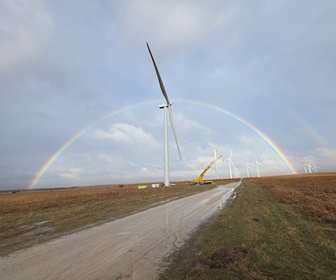A group of Dutch organisations, including TNO, Shell, TU Delft, Suzlon, Tarucca, and Fibersail, has initiated the ReliaBlade2-NL project. The project aims to improve the reliability of wind turbine blades by continuously monitoring their structural health throughout their lifespan.
To achieve this, the project will adapt existing digital twin concepts to predict remaining blade lifetime and support operations and maintenance activities. Over four years, the project will focus on three main areas:
- Developing an enhanced blade modelling scheme to predict blade structural behaviour over time. Testing at various levels will validate these methods and models.
- Creating algorithms to analyse data from strain, acceleration, and acoustic emission sensors, helping to characterise blades and detect anomalies during operation.
- Developing a decision support tool that integrates data from the digital twin, including weather, resource costs, asset-specific information, and maintenance requirements. The project will also analyse the risks associated with adjusting maintenance schedules.
Additionally, the project plans a wind turbine measurement campaign at an offshore wind farm, using blade condition monitoring systems developed by Fibersail and Tarucca. TNO will lead the development of methods for structural diagnosis and prognosis, and collaborate with Shell on digital twin development. TU Delft will conduct tests on provided equipment from Suzlon and develop Remaining Useful Life (RUL) models for blades.









